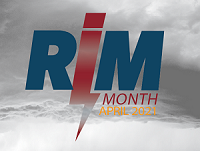April 28, 2021
Why should I have a retention schedule? Let's discuss

A document retention schedule acts as an organization's legal road map for retaining and destroying records; in other words, it clearly defines what documents, both digital and paper formats, need to be maintained and for how long.
If you need to know what classifies as a record please review PPM 3090 or the Records and Information Management Month article "What is a record?"
A retention policy also helps to ensure that businesses comply with state and federal laws.
Here are six reasons why you should consider creating a document retention policy:
- Reduce clutter: Too much clutter in the workplace can reduce productivity and increase employee stress. When you organize your information, you only save what is truly useful. A document retention policy also helps businesses reduce their onsite and offsite real estate footprints and costs. Likewise, the same policy can help reduce your digital footprint.
- Increase efficiency: Over-retaining records or destroying them too soon can result in numerous legal issues. A document retention policy will detail how to organize documents for storage, retrieval and record-keeping, making locating and retrieving records much easier.
- Capitalize on cost savings: There are costs related to maintaining unnecessary records. Employees waste time and money looking for documents, and there are storage costs for office space, filing cabinets, hard drives and cloud storage.
- Adhere to compliance regulations: Failure to comply with state and federal privacy laws by destroying or not maintaining records before the end of a required retention period can result in penalties. Your document retention policy should reflect all relevant compliance rules and other regulations.
- Manage and access control: Several laws, such as the Health Insurance Portability and Accountability Act, or HIPAA, or Family Educational Rights Privacy Act, or FERPA, contain specific provisions for who may access information and how it may be used. Generally, information should be made available only on a need-to-know basis.
- Improve security and data protection: One of the most valuable components of any document retention schedule is destruction. An organization should shred and delete any records containing confidential, personal or financial information when needed. Also, organizing your documents according to a schedule will help ensure that all sensitive material is stored securely.
In addition, COVID-19 has caused people to adapt to working from home and forced organizations to find digital solutions to keep operations running. This includes digitizing incoming mail, scanning filing cabinets and storing these documents in the cloud. As a result, document retention schedules will be more crucial than ever in a post-COVID-19 world.
If you have questions about retention schedules, please contact Ryan Leimkuehler at rleimkue@k-state.edu. You can also learn more about records information management at the university's records information management website.
